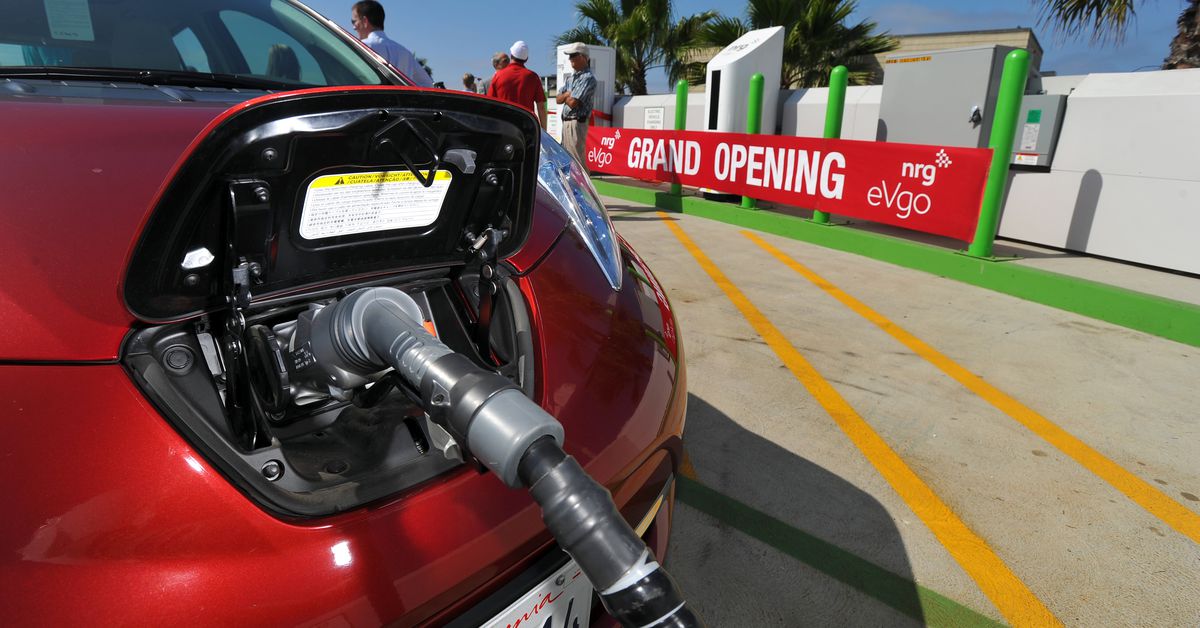Over 50 utilities across the US have come together to speed up the build-out of electric vehicle charging stations along the nation’s highways. The new National Electric Highway Coalition was announced today by the Edison Electric Institute (EEI), an association of investor-owned power companies.
Together, the companies aim to “fill charging infrastructure gaps along major travel corridors,” according to a fact sheet. Each utility that’s a member of the coalition must commit “in good faith” to create an EV fast charging network across its service territory “using any approach they see fit” by the end of 2023. The US will need more than 100,000 fast charging ports for the 22 million electric vehicles expected to traverse American roadways by 2030, according to the EEI.
For now, the roughly 1.8 million electric vehicles registered in the US can juice up at just 46,000 public charging stations in the country. Just around 5,600 of those, according to the Department of Energy, are DC fast charging stations that can get an EV battery to 80 percent charged in under an under hour. Easier access to faster charging stations, in particular, could help drive greater EV adoption among wary customers.
Things are on track to change quickly, however, because of new policies set in motion by the Biden administration. In August, Joe Biden signed an executive order setting a goal for half of all new passenger vehicles sold in the US by 2030 be electric or hybrid cars. To meet rising needs for EV charging, the recently passed bipartisan infrastructure law includes $7.5 billion to invest in a national network of EV chargers. That could benefit utilities that choose to partner with states on putting those dollars to work, according to Kellen Schefter, director of electric transportation at EEI.
“We’re excited about the additional funding that will be coming from the federal government to support public charging, we think all of that is needed and more,” Schefter says.
On top of permitting delays, the process of connecting new charging stations to the grid has slowed down the rollout of EV charging infrastructure in the past. But utilities have the advantage of already knowing what the grid’s existing capacity is at any potential new location for a charging station. That intel could help the coalition smooth out some of the road blocks that other initiatives have faced.
